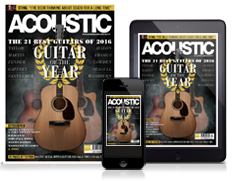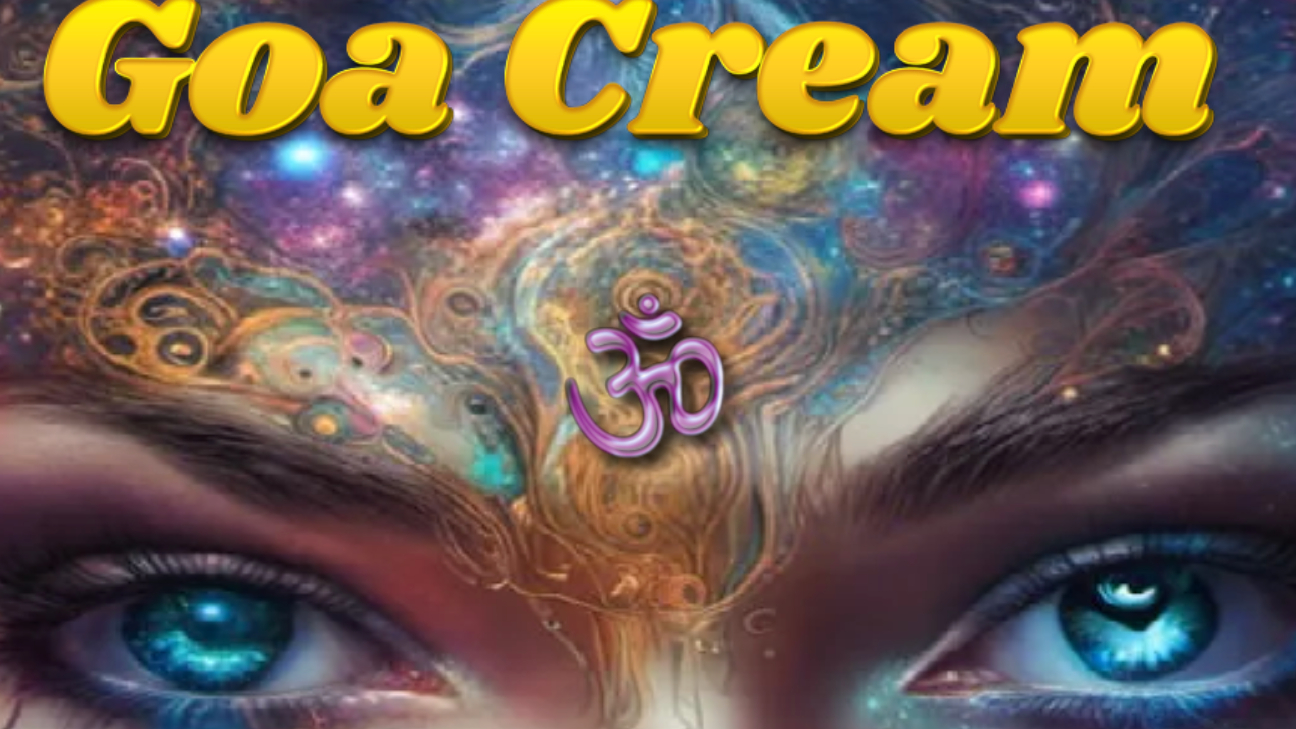Jerry Douglas: “I stood more of a chance of getting hit by a car than seeing another Dobro player”
The Dobro legend on slide, early days and why he doesn't practise

Jerry Douglas is a man etched firmly into the history books. On top of 15 solo recordings and 14 Grammy awards, he has appeared on over 1,500 albums with artists such as Eric Clapton, Garth Brooks, Ray Charles, Paul Simon, Randy Travis, Ricky Skaggs, Dolly Parton, Mumford & Sons, Elvis Costello, and more.
Arguably the greatest Dobro player to have lived, Douglas is also the most musically inclusive; exploring world music, blues, folk, country, rock, R&B, and of course, bluegrass during his 40-plus year career. Douglas has been a key member of Alison Krauss and Union Station since 1998; touring extensively and co-producing and playing on a series of platinum albums. Douglas is also co-Music Director for BBC TV series Transatlantic Sessions, alongside Scottish fiddle player Aly Bain.
Between all this Douglas has found the time to release a new album What If - the first with The Jerry Douglas Band - which fuses jazz, bluegrass, country, blues, swing, rock, and soul, on an 11-track album that is packed with bold arrangements and unexpected elements.
We caught up with the Nashville legend at Royal Festival Hall on London’s Southbank. He had just flown into town from the previous gig of the Transatlantic Sessions European tour; a star-studded band of artists from the folk/country scene.
Sliding start
What’s next for the Transatlantic Sessions?
“Well, a new TV series is being recorded in Scotland this October and I might come over for the whole month. It’s just beautiful there. I’ve actually visited the location where we’re gonna be, it overlooks the village. One of the great things about that show is that it’s not just a TV show about music - it promotes Scotland and Ireland. These two fellas that go out, Doug and Peewee, traipse around the country the whole time while we’re making music. But they’re out getting the pictures and visuals. They’re the ones who are waiting in these creeks and climbing trees.”
Between 1985 - 2000. I used to be able to go down to Music Row and do three sessions that day, just walk from one to the next
Going back to the start of your career, what was it like being a jobbing musician and starting a family?
Get the MusicRadar Newsletter
Want all the hottest music and gear news, reviews, deals, features and more, direct to your inbox? Sign up here.
“My wife was the manager of a records store when we met and she ran a club. When we had children she stopped and I started touring a lot and doing sessions. At first it was mostly sessions, like six days a week - three sessions a day - in Nashville and LA mostly, some Texas too. Between 1985 - 2000. I used to be able to go down to Music Row and do three sessions that day, just walk from one to the next.
“It was a great time but Alison Krauss called at just the right time or else I was gonna do myself in, you know - burnout. She had one of the guys fall out of the band and they didn’t know if they were gonna stay together or not. They had a sound and they were trying to see who they wanted to fill that role, to bring another voice into the band and they called me. But it was only to go out for a few weeks to see if they were even gonna keep going.
“After four days they were like ‘will you just stay in the band please?’ I was replacing a mandolin player and so it became a completely different kind of music. It wasn’t as bluegrass oriented but it still was because I’m a bluegrass musician but I’d been crossing all these lines and brought all these ideas in and Alison was really wanting to sing different material too. It all came along at a good time for her and a great time for me. I mean, my kids are all through college and have no student debt and it’s because of me and a Dobro.”
I don’t know anybody else who can say that.
I took something that no one would have ever figured you could make a living with and somehow it all worked out
“You know, that’s how I equate my usefulness. I took something that no one would have ever figured you could make a living with and I was in the right place at the right time and rubbed elbows with these giants and somehow it all worked out. But that’s a fluke and I’m very thankful of it and respectful and humbled by it.”
Keep on Trucks-in
What slide players are you excited by?
“Well Derek Trucks is number one. He and I are good friends. He’s more of a student than I am of Ali Akbar Khan [Indian sarod player] and also Sacred Steel playing, which is such a voice. So we’ve both explored that but he’s explored it more because of the music he plays. It allows more sustainable lines. Mine are shorter usually.
“When I heard him play the first time I thought that’s exactly what I would wanna sound like if I was playing this music. It was really serendipitous. It was an epiphany. I loved it so much. I was like ‘man I feel like I just played that’. I understood what he just did and I wholeheartedly endorse it. And he’s so young but he’s old. He was on the road when he was nine years old. He’s brilliant. The things that he thinks of, he’s always thinking way ahead and I just love the way he plays.
“Sonny Landreth, you know, forever. George Harrison; he’s the father of all that stuff, of the electric guys. The things he did with The Beatles and his solo records were so beautiful. People are still trying to match that. And isn’t that the wonderful thing about music, something like that can stay around for so long and no one can really do it. One guy had the heart and the influences he had to make him choose the notes that he chose.”
Do you still practise?
“I never did. I’m terrible at practicing but I do play so much. I hate rehearsals. Last week we rehearsed for three days and it was only offset by the joy of hearing the other musicians play. Even as a kid I didn’t like to practise but I was interested in the tone and what it was like to hear the dynamics of one note to the next. Which notes were more important in the roll or scale, which notes to accent, to bring out. That’s what interested me; I guess I practised because of that.
As a kid I stood more of a chance of getting hit by a car than seeing another Dobro player
“I listened to Josh Graves on records, I had no one to teach me. No YouTube, no TAB, nothing but records and the off-chance that somebody was gonna come through town who played the Dobro, but I stood more of a chance of getting hit by a car than seeing another Dobro player. So later on with Mike Auldridge and Rob Ickes it was like a brethren. We were all so happy to see each other. Dobro players aren’t very competitive, they’re cerebral people.”
How do you approach improvising?
“It depends on what kind of song it is and if there’s a singer or not. If there’s a singer and the melody is stated often I’ll try to refer to that melody but bring up some sort of counter melody or kinda write something that is maybe my interpretation of it with embellishment - but not too much.
“If there’s a singer involved you don’t wanna get too far away from the melody. And mixing genres can be a problem. If you start playing a jazz scale over a major oriented song that’s mostly major keys you can get out of place pretty fast.
“Really I try to approach it as a singer, always, and the improvising in the same way. I’m exploring the melody and maybe ending up on a different note. There’s one song that I re-recorded recently (Unfolding by Edgar Myer) that I’ve been playing for years but I finally found the lost ark of notes, passages that I’ve been looking for for years. I finally stumbled upon it and I was so happy with myself because I’ve been playing the song for so long and I’d kinda run out of roads. And I recorded it again and I found another melody, another way in, and only by improvising can you find things like that.
“You kinda have to go out on a limb and hopefully you don’t saw it off while you’re out there. You can reach a dead end really quick, it’s like being in a maze.”
What If, the new album by The Jerry Douglas Band, is out now.


“Beyond its beauty, the cocobolo contributes to the guitar’s overall projection and sustain”: Cort’s stunning new Gold Series acoustic is a love letter to an exotic tone wood
“Your full-scale companion. Anytime. Anywhere… the perfect companion to your full-size Martin”: Meet the Junior Series, the new small-bodied, travel-friendly acoustic range from Martin
![PRS Archon Classic and Mark Tremonti MT 15 v2: the newly redesigned tube amps offer a host of new features and tones, with the Alter Bridge guitarist's new lunchbox head [right] featuring the Overdrive channel from his MT 100 head, and there's a half-power switch, too.](https://cdn.mos.cms.futurecdn.net/FD37q5pRLCQDhCpT8y94Zi.jpg)








